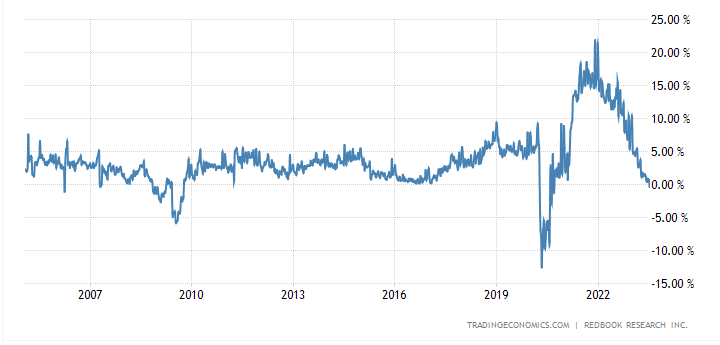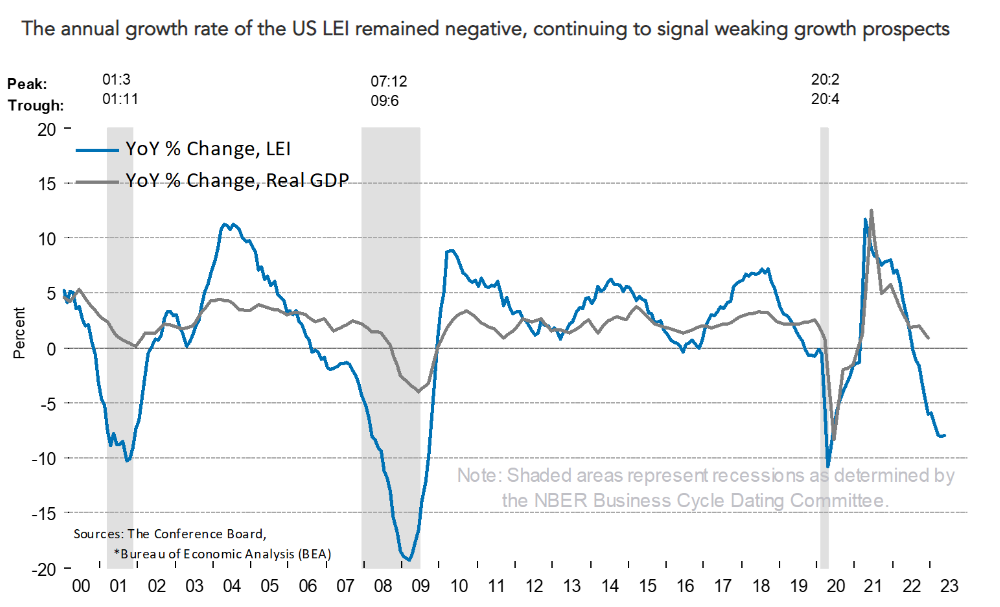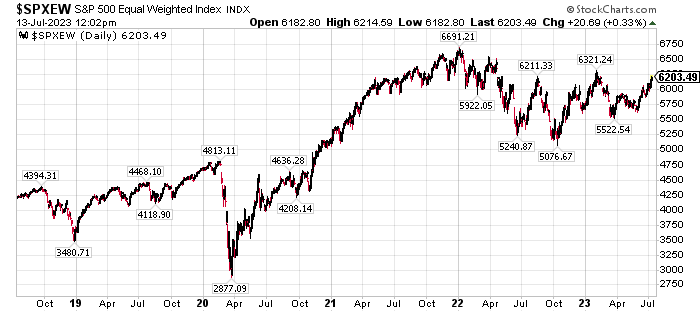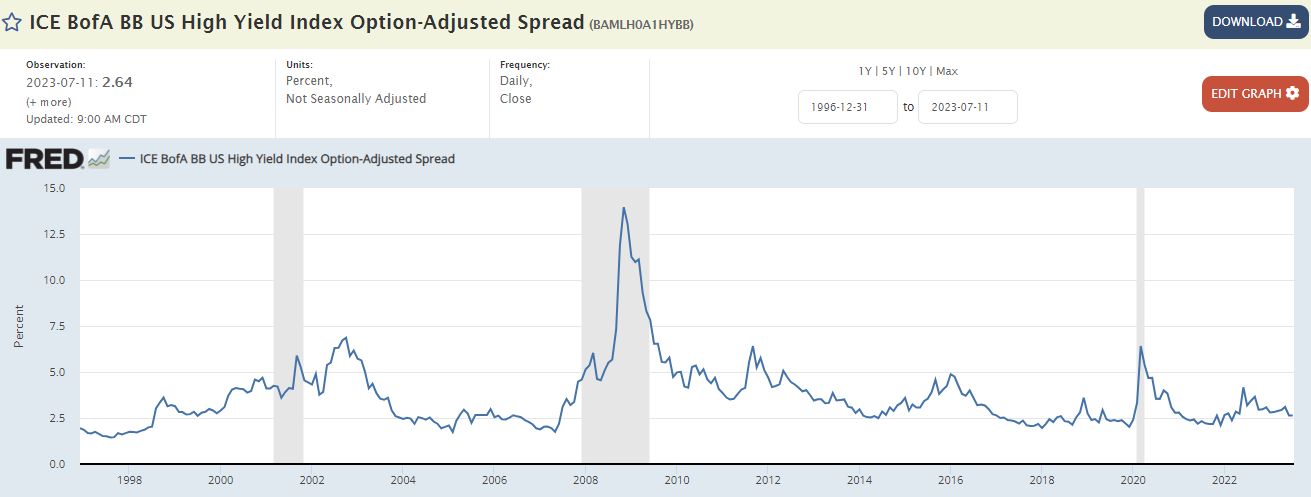“What if Adam Smith was here and we explained…indexation and stuff and how capital is allocated? He would say to us, "And what do you call this?" And we'd say, "We call it capitalism." He'd burst out laughing because it's the inverse of capitalism to say we give more capital to the companies with the largest market capitalization.”
Russell Napier with Demetri Kofinas
The less Americans know about Ukraine’s location, the more they want U.S. to intervene (2014)
We found that only one out of six Americans can find Ukraine on a map, and that this lack of knowledge is related to preferences: The farther their guesses were from Ukraine’s actual location, the more they wanted the U.S. to intervene with military force…the median respondent was about 1,800 miles off — roughly the distance from Chicago to Los Angeles…
The further our respondents thought that Ukraine was from its actual location, the more they wanted the U.S. to intervene militarily. Even controlling for a series of demographic characteristics and participants’ general foreign policy attitudes, we found that the less accurate our participants were, the more they wanted the U.S. to use force, the greater the threat they saw Russia as posing to U.S. interests, and the more they thought that using force would advance U.S. national security interests; all of these effects are statistically significant at a 95 percent confidence level. Our results are clear, but also somewhat disconcerting: The less people know about where Ukraine is located on a map, the more they want the U.S. to intervene militarily.
Best comment I saw about Americans' views of Ukraine: "People who think it’s in the central United States are understandably concerned."
Related:
The Bank for International Settlements
“The central bankers were more at home and relaxed with their fellow central bankers than with their own governments,” recalled Paul Volcker, the former chairman of the US Federal Reserve, who attended the Basel weekends…
All the governors present at the two-day gathering are assured of total confidentiality, discretion, and the highest levels of security. The meetings take place on several floors that are usually used only when the governors are in attendance. The governors are provided with a dedicated office and the necessary support and secretarial staff. The Swiss authorities have no jurisdiction over the BIS premises. Founded by an international treaty, and further protected by the 1987 Headquarters Agreement with the Swiss government, the BIS enjoys similar protections to those granted to the headquarters of the United Nations, the International Monetary Fund (IMF) and diplomatic embassies. The Swiss authorities need the permission of the BIS management to enter the bank’s buildings, which are described as “inviolable.”
The BIS has the right to communicate in code and to send and receive correspondence in bags covered by the same protection as embassies, meaning they cannot be opened. The BIS is exempt from Swiss taxes. Its employees do not have to pay income tax on their salaries, which are usually generous, designed to compete with the private sector. The general manager’s salary in 2011 was 763,930 Swiss francs, while head of departments were paid 587,640 per annum, plus generous allowances. The bank’s extraordinary legal privileges also extend to its staff and directors. Senior managers enjoy a special status, similar to that of diplomats, while carrying out their duties in Switzerland, which means their bags cannot be searched (unless there is evidence of a blatant criminal act), and their papers are inviolable. The central bank governors traveling to Basel for the bimonthly meetings enjoy the same status while in Switzerland. All bank officials are immune under Swiss law, for life, for all the acts carried out during the discharge of their duties…
The BIS’s assets are not subject to civil claims under Swiss law and can never be seized…
The BIS strictly guards the bankers’ secrecy. The minutes, agenda, and actual attendance list of the Global Economy Meeting or the ECC are not released in any form. This is because no official minutes are taken, although the bankers sometimes scribble their own notes…
What, then, does this matter to the rest of us? Bankers have been gathering confidentially since money was first invented. Central bankers like to view themselves as the high priests of finance, as technocrats overseeing arcane monetary rituals and a financial liturgy understood only by a small, self-selecting elite.
But the governors who meet in Basel every other month are public servants. Their salaries, airplane tickets, hotel bills, and lucrative pensions when they retire are paid out of the public purse. The national reserves held by central banks are public money, the wealth of nations. The central bankers’ discussions at the BIS, the information that they share, the policies that are evaluated, the opinions that are exchanged, and the subsequent decisions that are taken, are profoundly political. Central bankers, whose independence is constitutionally protected, control monetary policy in the developed world. They manage the supply of money to national economies. They set interest rates, thus deciding the value of our savings and investments. They decide whether to focus on austerity or growth. Their decisions shape our lives.
The BIS’s tradition of secrecy reaches back through the decades. During the 1960s, for example, the bank hosted the London Gold Pool. Eight countries pledged to manipulate the gold market to keep the price at around thirty-five dollars per ounce, in line with the provisions of the Bretton Woods Accord that governed the post–World War II international financial system. Although the London Gold Pool no longer exists, its successor is the BIS Markets Committee, which meets every other month on the occasion of the governors’ meetings to discuss trends in the financial markets. Officials from twenty-one central banks attend. The committee releases occasional papers, but its agenda and discussions remain secret.
…The BIS was founded in 1930. It was ostensibly set up as part of the Young Plan to administer German reparations payments for the First World War. The bank’s key architects were Montagu Norman, who was the governor of the Bank of England, and Hjalmar Schacht, the president of the Reichsbank who described the BIS as “my” bank. The BIS’s founding members were the central banks of Britain, France, Germany, Italy, Belgium, and a consortium of Japanese banks. Shares were also offered to the Federal Reserve, but the United States, suspicious of anything that might infringe on its national sovereignty, refused its allocation. Instead a consortium of commercial banks took up the shares: J. P. Morgan, the First National Bank of New York, and the First National Bank of Chicago.
…During the war, the BIS became a de-facto arm of the Reichsbank, accepting looted Nazi gold and carrying out foreign exchange deals for Nazi Germany.
The bank’s alliance with Berlin was known in Washington, DC, and London. But the need for the BIS to keep functioning, to keep the new channels of transnational finance open, was about the only thing all sides agreed on. [The ends justified the means - rh]
Basel was the perfect location, as it is perched on the northern edge of Switzerland and sits almost on the French and German borders. A few miles away, Nazi and Allied soldiers were fighting and dying. None of that mattered at the BIS. Board meetings were suspended, but relations between the BIS staff of the belligerent nations remained cordial, professional, and productive. Nationalities were irrelevant. The overriding loyalty was to international finance. The president, Thomas McKittrick, was an American. Roger Auboin, the general manager, was French. Paul Hechler, the assistant general manager, was a member of the Nazi party and signed his correspondence “Heil Hitler.” Rafaelle Pilotti, the secretary general, was Italian. Per Jacobssen, the bank’s influential economic adviser, was Swedish. His and Pilotti’s deputies were British.
After 1945, five BIS directors, including Hjalmar Schacht, were charged with war crimes. Germany lost the war but won the economic peace, in large part thanks to the BIS. The international stage, contacts, banking networks, and legitimacy the BIS provided, first to the Reichsbank and then to its successor banks, has helped ensure the continuity of immensely powerful financial and economic interests from the Nazi era to the present day.
- Adam LeBor, Tower of Basel: The Shadowy History of the Secret Bank that Runs the World
Here’s an excellent, short podcast with John Titus and Robert Kennedy Jr. on the corruption of our legal system by the BIS, Ben Bernanke, and Tim Geithner, in the HSBC case. Some financial institution execs are immune from prosecution.
A podcast with John Titus and Whitney Webb. I was particularly struck by something John Titus said - who is the REAL power in a nation? In the U.S., the "TBTF" banksters can create money AND they are immune from prosecution. It's true - no one was even investigated after 2008. Obama & Holder saw to that. They are immune.
Inside Job
[Larry] Summers looked at me intensely and asked a question so well rehearsed that I suspected he had used it to test others before me.
‘There are two kinds of politicians,’ he said: ‘insiders and outsiders. The outsiders prioritize their freedom to speak their version of the truth. The price of their freedom is that they are ignored by the insiders, who make the important decisions.
The insiders, for their part, follow a sacrosanct rule: never turn against other insiders and never talk to outsiders about what insiders say or do. Their reward? Access to inside information and a chance, though no guarantee, of influencing powerful people and outcomes.’
With that Summers arrived at his question.
‘So, Yanis,’ he said, ‘which of the two are you?’
- Yanis Varoufakis, Adults in the Room
Late in the evening, Larry leaned back in his chair and offered me some advice. By now, I’d lost count of Larry’s Diet Cokes, and our table was strewn with bits of food and spilled sauces. Larry’s tone was in the friendly-advice category. He teed it up this way: I had a choice. I could be an insider or I could be an outsider. Outsiders can say whatever they want. But people on the inside don’t listen to them. Insiders, however, get lots of access and a chance to push their ideas. People — powerful people — listen to what they have to say. But insiders also understand one unbreakable rule: They don’t criticize other insiders.
I had been warned.
If you’ve never seen the 2010 film Inside Job, check it out.
As you may know, I am generally not a fan of “private-equity.”
Here is an exchange from the second half of Demetri Kofina’s interview with Edward Chancellor, Russell Napier, and Helen Polis.
“The real reason PE firms want control of the companies they buy is not because of superior strategic insight but because they want to significantly leverage them.”
The use of leverage by these punks who have more money than brains is the problem. It's not the Robinhood guys, it's not the Reddit guys, it's the excessive leverage by hedge funds that have caused significant problems for others and for the system.
- Marc Cohodes on Realvision, Feb. 2021
If you’ve read this far, I’ve unlocked my first podcast with Grant Williams for y’all.
Cooling Inflation
Here are a few charts, some of which were prompted by a Tobias Carlisle tweet. This was one response, which is a valid question:
Since I’m not a “trader” - at least not short-term - I’m not shorting stocks (or buying) based on any of these charts, but I do like to be aware of the climate.
“The Redbook Index is a sales-weighted of year-over-year same-store sales growth in a sample of large US general merchandise retailers representing about 9,000 stores. A higher than expected number should be taken as positive to the USD, while a lower than expected number as negative.”
It does not take into account inflation.
U.S. Bankruptcies are still historically low
The Leading Economic Index provides an early indication of significant turning points in the business cycle and where the economy is heading in the near term. The Coincident Economic Index provides an indication of the current state of the economy. Additional details are below.
United States NFIB Business Optimism Index
The NFIB Small Business Optimism Index in the United States went up to a seven-month high of 91 in June 2023, beating again market expectations of 89.9. Among the key findings, 24% of owners reported that inflation was the single most important problem in operating their business, down 1 point from last month.
United States LMI Logistics Managers Index Current
The LMI score is a combination of eight unique components that make up the logistics industry, including: inventory levels and costs, warehousing capacity, utilization, and prices, and transportation capacity, utilization, and prices. The LMI is calculated using a diffusion index, in which any reading above 50.0 indicates that logistics is expanding; a reading below 50.0 is indicative of a shrinking logistics industry.
Global Supply Chain Pressure Index
The Global Supply Chain Pressure Index (GSCPI) was developed by the Federal Reserve Bank of New York and includes 27 monthly variables reflecting events within supply chains and transportation costs in the maritime and air cargo sectors. The index is normalized so that zero indicates an average value
SPX Equal Weight
How Handing Back the Keys On Commercial Real Estate Works
“Many of the lenders [on office assets] aren’t even the sole lenders, especially in CMBS they’re not, and in a whole loan, or a portfolio loan, there may be co-lenders, participations, and some may want out of the deal under no uncertain terms even if it’s at a loss,” explained Jay Neveloff, partner and chair of the real estate practice at Kramer Levin. “Depending on who the sponsor is, depending on what the building is, the response is, ‘You know what? You’re absolutely right, you can foreclose,’ and you’ll sell the note at a distressed sale or in two years … but most lenders don’t want to own assets because they don’t know what to do with them. “So, this is lawyer heaven,” Neveloff added.
…“The trick to avoid [default] is you need not be over-levered, and be able to maintain a decent occupancy in your buildings,” Gural explained. “Then you can usually avoid having to give the keys back.”
…The first thing that happens if a property goes into default — usually triggered by a missed loan payment — is the lender sends a note to the borrower stating that they’re in default. If the borrower doesn’t respond, they send a foreclosure notice to begin the dual tracking, when a lender pursues a foreclosure while simultaneously exploring other resolutions such as a loan modification or a sale, explained Cohen. If the lender can see the borrower isn’t running the property correctly, they’ll put in a receiver — a third party elected by the bank — to oversee it temporarily.
Within this bizarre state of real estate limbo are the Scylla and Charybdis of recourse and nonrecourse carve-outs inside the loan documents, which lenders study with a fine-tooth comb during the receivership phase to see whether the default has triggered additional judgments on the underwater property.
Recourse loans allow a lender to seize additional assets if the borrower’s debt surpasses the property value; nonrecourse loans protect a borrower by limiting a lender’s clawbacks to collateral specified in the loan agreement, even if that collateral is less than the outstanding debt.
While every nonrecourse loan document carries language specifying that the lender won’t pursue money judgments against the borrower, but rather only a judgment to foreclose on the property, there are two exceptions: above-the-line recourse items and below-the-line recourse items, both of which allow the lender to go after the borrower personally, according to [Shlomo] Chopp.
Above-the-line items include allegations that the borrower committed fraud, failed to cover insurance payments, or committed waste or damage to the building, and the lender needs to prove this before submitting a money judgment for the damages. Below-the-line judgments occur mainly when the borrower declares bankruptcy, which triggers full recourse against the borrower, even beyond the damages.
And then there’s CMBS…Good article worth reading if you’re into this sort of thing.
I see no fear.
Good grief…you can’t blame this all on the Covid…
The 'Urban Doom Loop' for Commercial Real Estate w/ Stijn Van Nieuwerburgh This I listened to twice.
We Need To Talk About Inflation with Stephen King Good interview, particularly starting around 1:10:30 where King talks about the problem of economist Groupthink, and lack of accountability.
CoreLogic: US Annual Home Price Growth Drops to the Lowest Rate in 11 Years in May I think this is good news.
For over two decades, Rory Steinel and his wife have rented out their beachside home along the Jersey Shore during the busy summer months. The property has always been highly sought after, with bookings typically filled for the summer by February.
But owners like the Steinels are now facing an unusual predicament as prime weeks in July and August remain unbooked, underscoring a significant change in the vacation rental market. "We've never had a problem renting, not like this," said Rory Steinel.
The Trillion-Dollar Grift: Inside the Greatest Scam of All Time
"I think the government lost a trillion dollars due to fraud in the pandemic,” he says. “One trillion.”"
Greg Weldon: Are You Guys Playing Cards? I like Weldon
“Real Estate is About to “Get Ugly” as The Fed Makes Drastic Moves” Danielle DiMartino Booth. Pretty good, although I did really want to interject a number of times. On the audio-only version I heard the hosts did an intro warning (apologizing?) to their listeners about some of Danielle’s apparently aberrant (read: bearish) views. BiggerPockets podcasters seemingly are not used to that.
Kyle Bass On China: 'We Sit At A Hinge In History Right Now' Excellent explanation from Kyle Bass about 7 minutes in of "chain-weighted" prices, and hedonic-quality adjustments. The CPI is nonsense.
Friends of the show Marty Bent and Ed Dowd discuss the vaccine, RFK Jr. and other things I looked for this on Youtube, but I think Marty didn’t even bother posting it there since the fascists running Youtube would’ve taken it down.
Unraveling the Federal Reserve: A Deep Dive into Monetary Systems, Government Intervention, and Libertarianism with Chris Rossini Good discussion. A number on the left and right use “libertarian” as a pejorative, but it’s just another word now that has been rendered almost meaningless. Chris mostly talks about my two big issues, foreign and monetary policy.
“The real division is not between conservatives and revolutionaries
but between authoritarians and libertarians.”- Attributed to a letter from George Orwell to Malcolm Muggeridge in December, 1948, mentioned by a number of authors. I have not personally seen the source book text yet though, as I always try to do.
This is the book, published around 1981. Still looking for it:
Note that the term “libertarian” is fairly old.
This is from an 1867 American dictionary.
According to the 1979 Gallup poll, 51 percent of Americans had confidence in newspapers. In the current 2023 Gallup poll, that figure stands at 18 percent. The only institutions with a lower rating are: the criminal justice system at 17 percent; television news at 14 percent; big business at 14 percent; and Congress at 8 percent




































Another great read Rudy. I think America is too corrupt to be saved. Maybe RFK can do it. Who knows though. For me I’ll be staying down under. Might move to Tassie to get further from it all. Get back to nature escape the debt prison and inflation by growing my own food and raising my own livestock.
Hookers and blow (and Viagara ®) galore at the BIS. What a life!